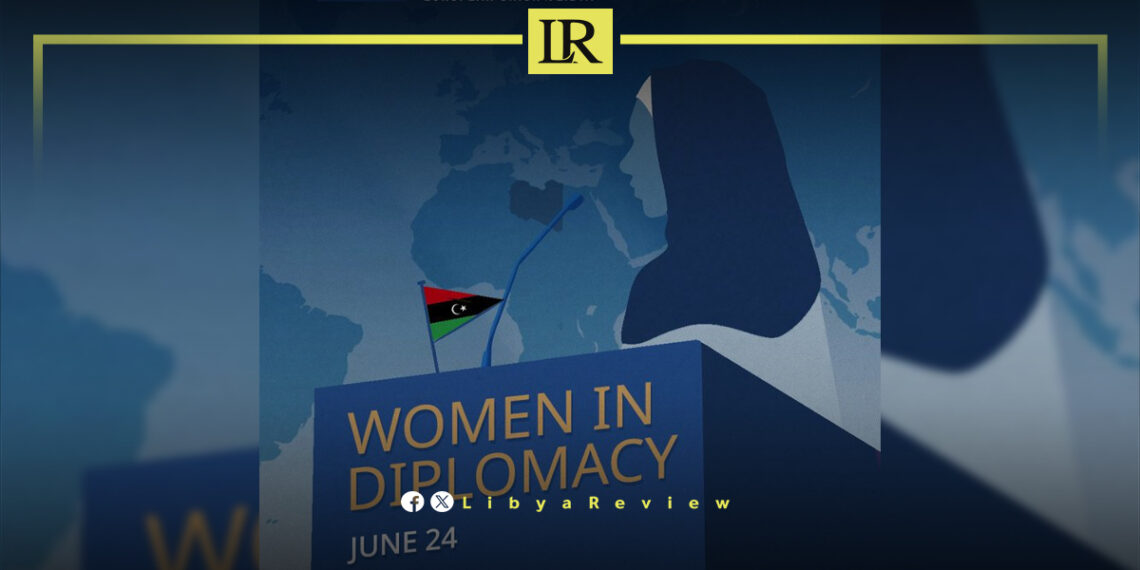The European Union has praised the vital role of Libyan women in shaping the country’s diplomatic landscape, emphasizing their contributions to building bridges, fostering dialogue, and promoting peace across Libya.
In a statement issued on the International Day of Women in Diplomacy, the EU delegation to Libya highlighted how Libyan women are helping the nation navigate political challenges and engage in meaningful diplomacy. The message celebrated the voices of female diplomats and activists, describing them as “fighters” and “bridge-builders” in the pursuit of national unity and reconciliation.
“The future of diplomacy speaks with many voices,” the EU statement read, marking the global occasion by recognizing the impact of women who are redefining diplomacy in post-conflict Libya.
Despite the political divides and ongoing instability, Libyan women have increasingly taken part in national and international discussions. From grassroots mediators to official representatives, they have played essential roles in peace talks and international forums, pushing for inclusive political solutions and the protection of civil rights.
This recognition comes as part of broader international efforts to empower women in foreign policy, in line with the United Nations’ goals of gender equality and sustainable peace.
As Libya continues its complex transition, the presence of women in diplomacy not only challenges traditional gender roles but also brings diverse perspectives essential for long-term stability and conflict resolution.
The EU reiterated its support for initiatives that enhance women’s leadership and participation in shaping Libya’s future.
Libya has been in chaos since a NATO-backed uprising toppled longtime leader Muammar Gaddafi in 2011. The county has for years been split between rival administrations.
Libya’s economy, heavily reliant on oil, has suffered due to the ongoing conflict. The instability has led to fluctuations in oil production and prices, impacting the global oil market and Libya’s economy.
The conflict has led to a significant humanitarian crisis in Libya, with thousands of people killed, and many more displaced. Migrants and refugees using Libya as a transit point to Europe have also faced dire conditions.
The planned elections for December 2021 were delayed due to disagreements over election laws and the eligibility of certain candidates. This delay has raised concerns about the feasibility of a peaceful political transition.
Despite the ceasefire, security remains a significant concern with sporadic fighting and the presence of mercenaries and foreign fighters. The unification of the military and the removal of foreign forces are crucial challenges.


